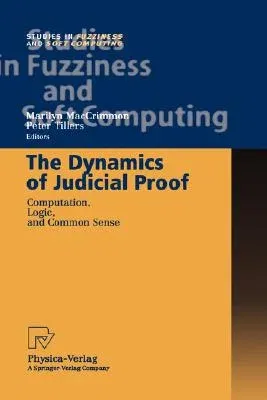The Dynamics of Judicial Proof: Computation, Logic, and Common Sense (2002)Hardcover - 2002, 11 March 2002

Qty
1
Turbo
Ships in 2 - 3 days
In Stock
Free Delivery
Cash on Delivery
15 Days
Free Returns
Secure Checkout

Part of Series
Studies in Fuzziness and Soft Computing
Print Length
494 pages
Language
English
Publisher
Physica-Verlag
Date Published
11 Mar 2002
ISBN-10
3790814598
ISBN-13
9783790814590
Description
Product Details
Book Edition:
2002
Book Format:
Hardcover
Country of Origin:
DE
Date Published:
11 March 2002
Dimensions:
23.83 x
16.66 x
3.63 cm
ISBN-10:
3790814598
ISBN-13:
9783790814590
Language:
English
Location:
Heidelberg
Pages:
494
Publisher:
Weight:
889.04 gm